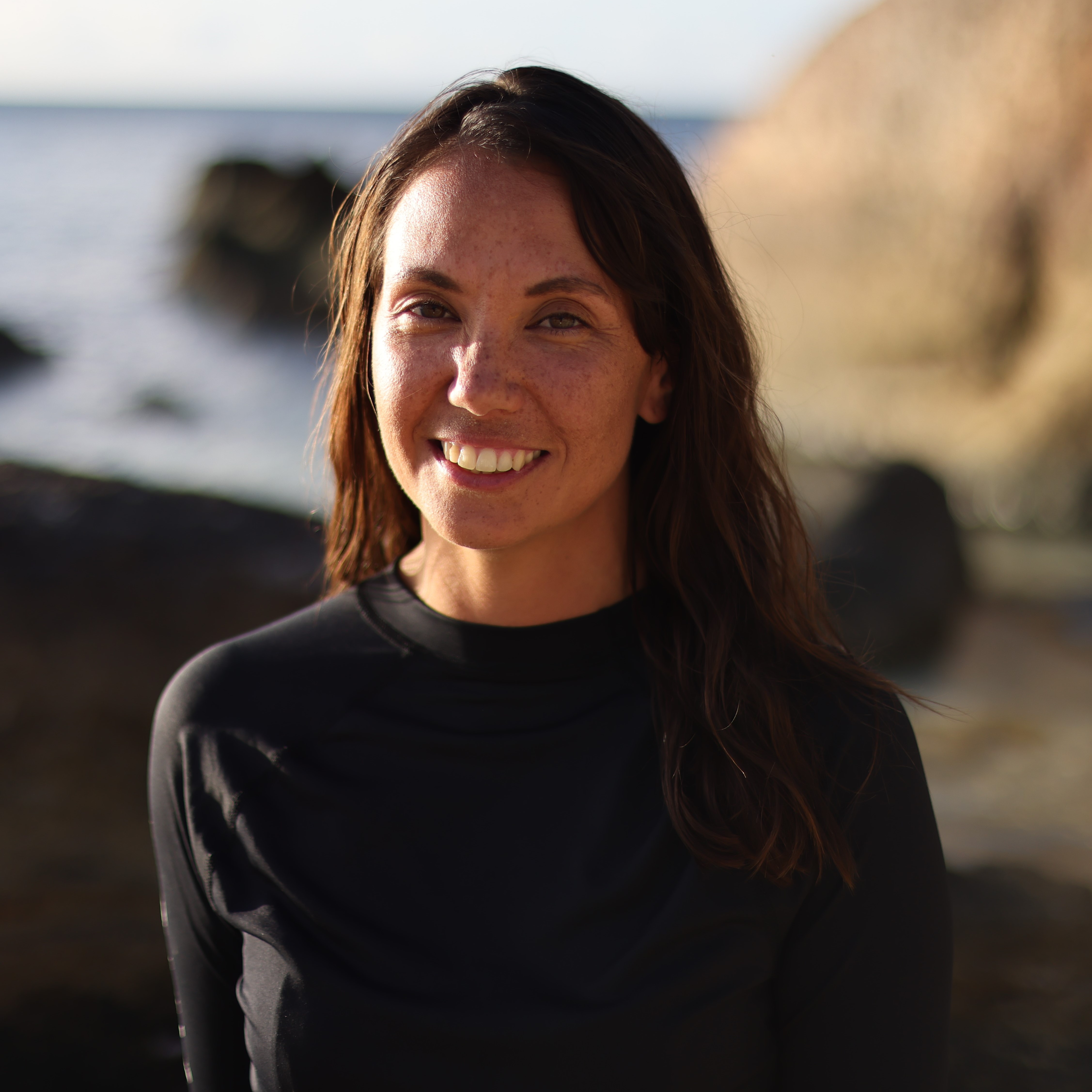Meet Taleatha

Taleatha participated in the third voyage of the Indigenous Time at Sea Scholarship. She is a Noongar woman with family ties to Western Australia.
I am a Noongar woman who grew up on Whadjuk land in Fremantle, WA with blood ties to the Wardandi from the South West Boojarah region of WA. I am inspired by coral reef environments and the diversity of life in these systems. I am a recent Master of Science in Marine Biology graduate from James Cook University (JCU) and am interested in coral reef ecology and using technology, including sensors, remote operated video and drones to assist in monitoring of marine environments. My main experience is with:
- benthic and fish surveys
- macroalgal removal for restoration
- algal cover and bleaching surveys
- in water and drone mapping of coral reef environments
- coral settlement tile installation and tile analysis
- underwater video setup of algal assays including analysis
- water quality data analysis.
I am currently working in marine science as a consultant working on coral monitoring, marine benthic community and habitat mapping, marine fauna monitoring and reporting and water quality data analysis. I also tutor fellow indigenous students at JCU and am an ambassador for the Aboriginal and Torres Strait Islanders in Marine Science (ATSIMS) program which engages with high school students to involve them in marine science. Before studying marine science I worked in marine tourism, working as a coxswain and divemaster for 2 years and as a tour guide and deckhand for another 3 years previously.
I am excited to get out on RV Investigator and experience marine science outside of the world of coral reefs and see how science works on a large scale. I am excited to learn more about oceanographic processes that have affects on the biology and ecology of marine environments and use a range of new technologies I have yet to experience. I would like to get involved in the science needed for organisations including CSIRO, AIMS and the Queensland Department of Environment and Science to contribute to science affecting areas such as the Great Barrier Reef and marine park areas in Australia.
Taleatha's voyage
Taleatha joined fellow ITSS student Kiesha Wear and ITSS coordinator Dr Ben Arthur on the third ITSS voyage on RV Investigator. The voyage departed Brisbane on 14 July 2022 and spent 16 days conducting research in the waters of the East Australian Current off Brisbane. The voyage finished back in Brisbane on 29 July 2022.
Voyage page: IN2022_V06
The Indigenous Time at Sea Scholarship is supported by the Marine National Facility as part of the CSIRO Reconciliation Action Plan.
Meet Taleatha
Taleatha participated in the third voyage of the Indigenous Time at Sea Scholarship. She is a Noongar woman with family ties to Western Australia.
I am a Noongar woman who grew up on Whadjuk land in Fremantle, WA with blood ties to the Wardandi from the South West Boojarah region of WA. I am inspired by coral reef environments and the diversity of life in these systems. I am a recent Master of Science in Marine Biology graduate from James Cook University (JCU) and am interested in coral reef ecology and using technology, including sensors, remote operated video and drones to assist in monitoring of marine environments. My main experience is with:
- benthic and fish surveys
- macroalgal removal for restoration
- algal cover and bleaching surveys
- in water and drone mapping of coral reef environments
- coral settlement tile installation and tile analysis
- underwater video setup of algal assays including analysis
- water quality data analysis.
I am currently working in marine science as a consultant working on coral monitoring, marine benthic community and habitat mapping, marine fauna monitoring and reporting and water quality data analysis. I also tutor fellow indigenous students at JCU and am an ambassador for the Aboriginal and Torres Strait Islanders in Marine Science (ATSIMS) program which engages with high school students to involve them in marine science. Before studying marine science I worked in marine tourism, working as a coxswain and divemaster for 2 years and as a tour guide and deckhand for another 3 years previously.
I am excited to get out on RV Investigator and experience marine science outside of the world of coral reefs and see how science works on a large scale. I am excited to learn more about oceanographic processes that have affects on the biology and ecology of marine environments and use a range of new technologies I have yet to experience. I would like to get involved in the science needed for organisations including CSIRO, AIMS and the Queensland Department of Environment and Science to contribute to science affecting areas such as the Great Barrier Reef and marine park areas in Australia.
Taleatha's voyage
Taleatha joined fellow ITSS student Kiesha Wear and ITSS coordinator Dr Ben Arthur on the third ITSS voyage on RV Investigator. The voyage departed Brisbane on 14 July 2022 and spent 16 days conducting research in the waters of the East Australian Current off Brisbane. The voyage finished back in Brisbane on 29 July 2022.
Voyage page: IN2022_V06
The Indigenous Time at Sea Scholarship is supported by the Marine National Facility as part of the CSIRO Reconciliation Action Plan.
